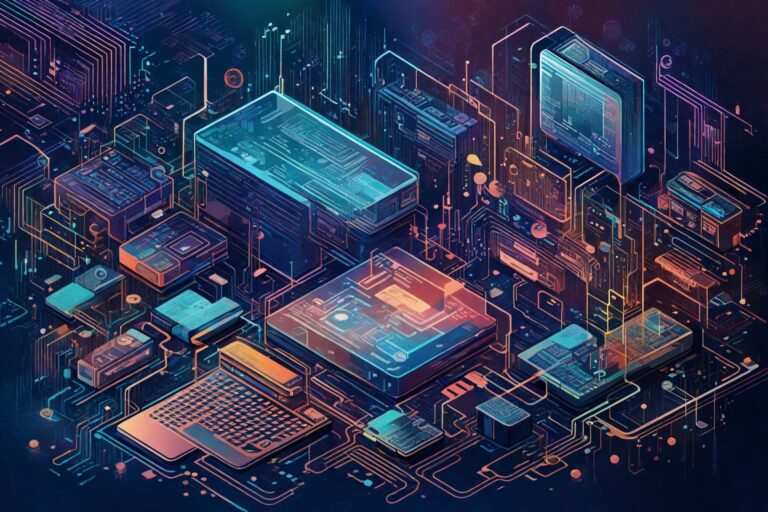Imagine a world where we can effortlessly communicate with our devices using nothing but our voices. A world where we can dictate emails, write documents, and control smart devices with simple spoken commands. This is the revolutionary power of speech recognition technology. In this article, we will explore how speech recognition technology is transforming the way we communicate and the impact it has on various aspects of our lives.

The Evolution of Speech Recognition Technology
From humble beginnings to sophisticated algorithms
Speech recognition technology has come a long way since its inception. In the early days, it struggled to accurately interpret spoken words due to limited computing power and complex linguistic patterns. However, advancements in machine learning and artificial intelligence have given rise to more robust and accurate speech recognition algorithms.
Today, sophisticated algorithms powered by deep learning models can accurately transcribe spoken words and even identify speakers with impressive precision. This evolution has opened up a world of possibilities and has revolutionized the way we interact with technology.
Enhancing Accessibility and Inclusion
Giving a voice to the voiceless
Speech recognition technology has played a pivotal role in enhancing accessibility for individuals with disabilities. For people with mobility impairments or conditions like dyslexia, traditional means of communication can be challenging. Speech recognition technology enables them to dictate their thoughts, compose emails, and interact with digital devices, empowering them to participate fully in both personal and professional spheres.
Moreover, speech recognition technology holds immense potential in aiding individuals with visual impairments. Voice-controlled virtual assistants can help them navigate their devices, read out emails, and access information on the web, breaking down barriers and fostering independence.
Breaking Language Barriers
Speech recognition technology has also been instrumental in breaking down language barriers. Real-time translation applications, powered by speech recognition, enable individuals to have fluid conversations across languages without the need for human intermediaries. This technology has immense implications for international business, travel, and fostering cross-cultural connections.
Revolutionizing Productivity and Efficiency
Dictation, transcription, and multitasking made easy
Gone are the days of painstakingly typing out long documents or emails. With speech recognition technology, we can now effortlessly dictate our thoughts, allowing for faster and more efficient communication. Whether it’s taking notes during meetings, composing emails on the go, or brainstorming ideas, speech recognition technology simplifies the process and boosts productivity.
Transcription services that utilize speech recognition technology have also become invaluable in various industries. From legal proceedings and medical reports to content creation and media transcription, these services save time and effort while maintaining accuracy.
Hands-free Control
Home automation has become increasingly popular, and speech recognition technology has taken it to the next level. With voice commands, we can control lights, adjust thermostats, play music, and even order groceries, all without lifting a finger. This hands-free control not only enhances convenience but also promotes a seamless integration of technology into our daily lives.
Privacy and Ethical Considerations
Balancing convenience with data security
While speech recognition technology provides incredible convenience, it also raises concerns about privacy and data security. As we rely more on voice-activated devices, our conversations and interactions become digitized, raising questions about the collection and storage of personal data.
Companies must prioritize user privacy and implement stringent security measures to protect user information. Transparent data policies, robust encryption, and giving users control over their data can help alleviate concerns and build trust in speech recognition technology.
The Future of Communication
Endless possibilities
As speech recognition technology continues to advance, the possibilities for its application are limitless. It has the potential to revolutionize customer service by providing more efficient and personalized support. Smart homes will become even smarter, with voice assistants seamlessly integrating into every aspect of our lives. In healthcare, speech recognition technology can assist in diagnosing and treating patients, streamlining medical processes, and enhancing patient care.
With further advancements, speech recognition technology could evolve to understand emotions, accents, and even non-verbal cues. Just imagine a world where technology can comprehend and respond to our emotions, making interactions more nuanced, empathetic, and human-like.
In conclusion, speech recognition technology represents a significant breakthrough in the way we communicate. Its ability to enhance accessibility, improve productivity, and break down language barriers is transforming our lives. As we move forward, it is imperative to address privacy concerns and ensure ethical implementation. The future of communication is here, and speech recognition technology is leading the way. Let us embrace this revolutionary technology and unlock its full potential for the betterment of society and human connection.
“Speech recognition technology: where the power of communication lies in our voice.”

